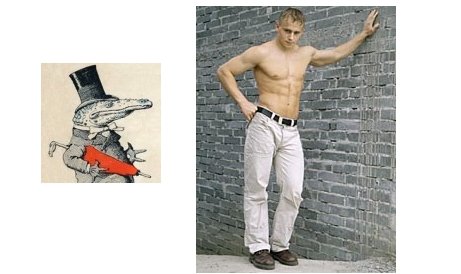Last night, zapping the TV before going to bed, I was struck sleepless by a stage production of The Messiah from 2009 in Vienna, shown now on the German 3Sat channel. I am neither prone to sleeplessness, nor at all partial to Baroque music. In fact, for the last 10 years I haven't listened to music at all. I find it intolerable because it distracts my thinking.
Anyhoo, there was this modernist scenery on a giant almost-empty stage which had separately revolving sections for scene changes - you know the kind of thing I mean, art imitating life. There were a couple of soloists and a group of choir-folks, all in contemporary dress, participating in a plot of marital despair and hope analogized on the oratorio text. (This itself consists of passages from the Bible, I now discover.) The musical sections had been reordered to suit the plot.
So, one naturally thinks "O my god" as the thumb edges toward the off-switch on the remote. BUT - the businessman who turns out to be Christ and the husband (as a cast member apparently a dancer, who doesn't say a word) was standing there glancing repeatedly at his watch, straightening his suit lapels and looking very unhappy. He was cute in a stressful kind of way, and there was another guy in a suit sitting on the ground in the shadows with his back to the wall, who also looked promising. So I thought: "let's look at decorative guys a bit longer".
The guy on the ground gets up, eases over to Christ and starts singing. A countertenor ! Singing his part at an exquisitely slow tempo ! Every syllable, every note made me shiver - and countertenors are certainly not my thing. It was almost unbearably beautiful. If he had been a book, I would have had to shut it to avoid being overwhelmed - as I have had to do occasionally with books chock-full of fabulous ideas, for instance Luhmann's. As for decorative and promising - when the guy you had your eye on suddenly spreads his wings and is revealed as an archangel, sordid intentions tend to give way to wondering whether you should get out grandma's best tea service.
The entire oratorio was performed in this pensive, penetrating slow-motion. The "Halleluja Chorus" was sung quietly, respectfully, hopefully by the choir members sitting in rows of chairs at the funeral of Christ. It was not sung in the loud, triumphant, buzz-off-O-ye-of-little-faith fashion we know so well.
I found a review of this production that sums it up well:
The musical structure differs only slightly from Handel’s operas, with the exception of the central role played by the chorus (which is typical of oratorium). The work can be seen as a group of the faithful talking to themselves in a struggle to find solace in faith. Their dismay at their own entanglement in sin is offset with their assuring themselves that they have been promised salvation by the saviour. The point of reference of this hope is the fear of death. When performed in concert halls the work can easily be reduced to a devotional and edifying solemnity, bereft of real content. But played out on stage, the scenes portray specific situations dealing with the circumstance that the world is yet to be saved. The Messiah succeeds as a theatrical production.The mention loop began to form 3 days ago when I picked up a paperback edition of Stefan Zweig's little book of essays Sternstunden der Menschheit from the steps of the small theater down the road from me, where people deposit books that they think they don't want anymore. The second essay, Georg Friedrich Händels Auferstehung (G.F.H.'s Resurrection), was about the composition of the Messiah. Y'all read it for Händel as a man of sorrow, and acquainted with grief.



